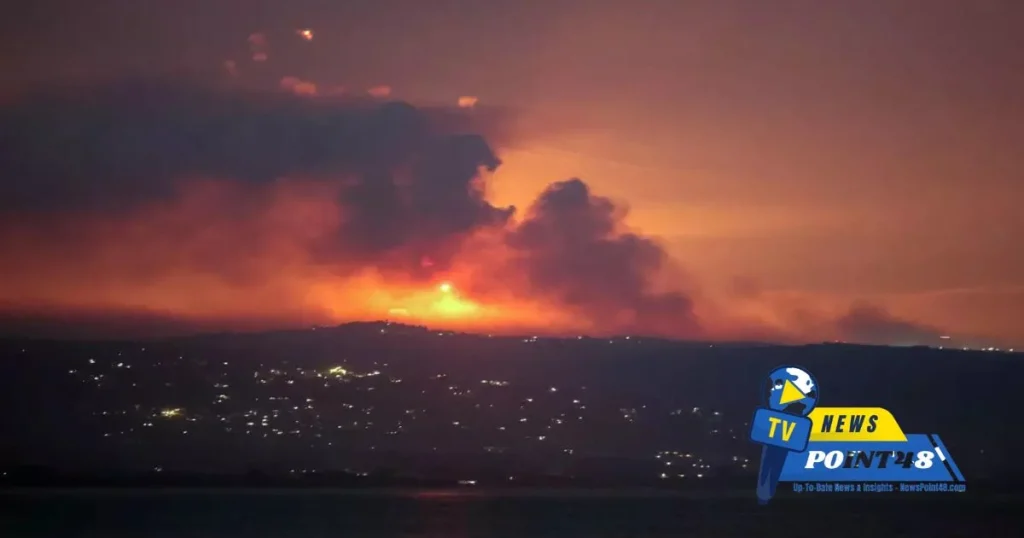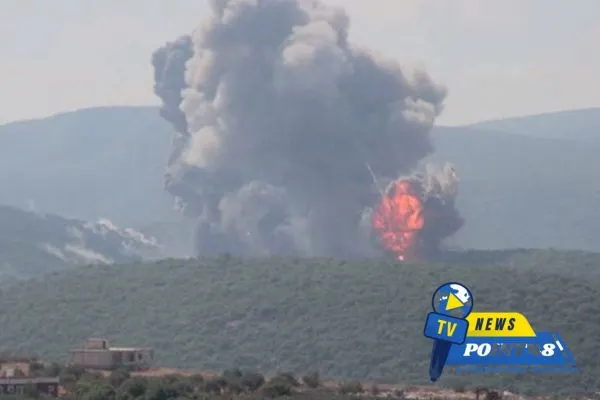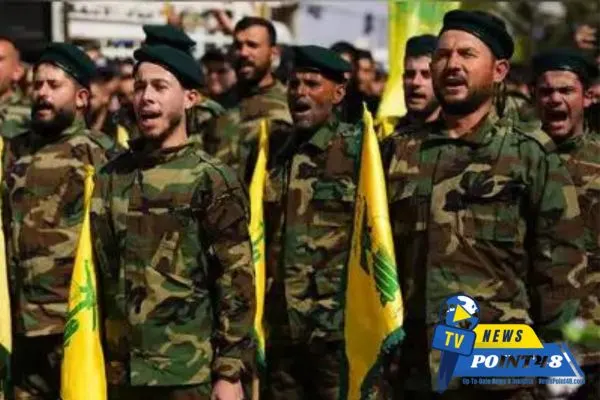
Fresh Israel-Hezbollah Exchanges Raise Regional Conflict FearsTensions in the Middle East ratcheted higher as Israel and Hezbollah exchanged new attacks, with terrorists launching a barrage of rockets over the northern border for a second day Wednesday and Israeli troops bombing bases inside Lebanon in retaliation. With clashes escalating between the two foes, the world has been paying close attention due to concerns that these hostilities could turn it into an inter-country war.
Wave of Violence: What Is Behind the New Bout In The Conflict?
The violence also comes after a spate of provocations and counterattacks between Israel-Hezbollah, the Lebanon-based militant group. They, with Iranian backing, have long been a nemesis of Israel conducting cross-border skirmishes and rocket attacks into Israeli territory. These stand-offs have escalated significantly in recent weeks as both the above-said sides are now running military operations.
The fresh outbreak comes as part of a longer-term cycle of occasional reprisals between Israel and Hezbollah. Despite having both engaged in short, fierce wars before—chiefly the 2006 Lebanon War—the current spate of strikes has raised concerns of a widening conflict in the region.
Israeli Perspective – Limiting Growth of Hezbollah.

They increasing military capabilities have driven Israel in its targeting operations against the group. Hezbollah has built a massive stockpile of missiles and rockets, with many supplied by its regional sponsor Iran, that can strike deep into the Israeli heartland. In retaliation, Israel has carried out a series of airstrikes against Hezbollah positions and weapons depots in Lebanon and Syria.
Israeli officials have said for years that Hezbollah’s growing capabilities are a red line. With that in mind, Israel has adopted a policy of attacking high-value targets and warding off attempted infiltrations along its northern border to keep them at bay.
It argues the attacks are essential to protect Israeli security and prevent them from gaining a stronger foothold in the region.
The answer of Hezbollah: counter by the response
Hezbollah, in turn, has retaliated for Israel’s actions by firing salvos of rockets and incursion raids across the border. The Islamic militant group’s leadership has presented its actions as Israel’s defense, saying it is entitled to respond to what it considers Israeli aggression against the Palestinian territory.
They has also threatened to retaliate with more attacks on Israel, in addition to its military response. It has pledged to safeguard Lebanese sovereignty and thwart Israel from determining the rules of engagement.
With an added military organization to the current players in Syria and a close relationship with Iran, the complications of peace become even more challenging.
Fears of a Wider Conflict

The rising violence between Israel and Hezbollah has raised fears that the conflict could extend to a broader regional war. Both sides have strong allies that could be sucked into the morass, potentially leading to even more chaos in the Middle East.
A main element in this equation is that Iran supports Hezbollah. As the fighting continues, Iran could step up its aid to Hezbollah or even get directly involved if things heat up. It is expected that such a move would elicit a very hostile Israeli reaction which could cause the US, an ally of Israel, to enter into the fray.
There are a host of other concerns as well—among them, is the worry that their actions could embolden Gaza-based and West Bank Palestinian militants to launch tandem attacks on Israel.
Global Reaction And Diplomatic Efforts
The international community has reacted with alarm and pleas for calm as the conflict escalated. The United Nations and several Western countries including the US have called for both Israel and Hezbollah to refrain from any escalation and use diplomatic ways to avoid a likely full-scale war.
The US returned followed dispatched praising Israel’s right to safeguard while calling on the two sides to confine their activities. European nations have also urged restraint, saying ongoing violence threatens to further destabilize the entire region.
But neither Israel nor Hezbollah are now displaying any inclination to retreat and the course back down from the edge remains unclear.
Impact on the Middle East
And a broader Israel-Hezbollah conflict would have far-reaching consequences for the Middle East. That proxy war could bring in Iran, Syria, and other neighboring countries and spread into a wider regional conflict, with catastrophic impact on civilians throughout the region.
This would probably exacerbate the humanitarian situation in Lebanon, which is facing an economic crisis and being plagued by political pressures. A large-scale war would put an enormous burden on Lebanon’s weak infrastructure and displace even more people, making an already rapidly spiraling country all the worse.
A prolonged hit-and-run conflict with Hezbollah would sap Israel’s strength and could provide an opening for other militants in Gaza, the West Bank, or elsewhere.
Read More at the Conclusion: A Critical Time for Peace

Israel-Hezbollah tit-for-tat was a new low in challenge-laden relationship The latest tit-for-tat between Israel and Hezbollah represents an ominous chapter in the long-complicated history of relations between the two sides. With each side mounting more violent attacks, other countries in the region are nervously watching to see if an abominable situation turns into a larger regional war.
Diplomatic initiatives will be vital to prevent more bloodshed and secure a sustainable peace deal. But this sense it little solace against a backdrop of seemingly intractable tensions.
Keep visiting us on newspoint48 for more details and in-depth analysis of the Israel-Hezbollah conflict and how it will affect World Stability.
